From April 14 to April 16, the 2025 Annual Conference of the Center for Power Electronics Systems (CPES) at Virginia Tech was held in Blacksburg, USA. Professor Li Yongdong from the Department of Electrical Engineering and Applied Electronics (EEA), Tsinghua University, was invited to attend the conference and deliver a plenary keynote presentation. Six doctoral students—Bai Ruihang, Wang Leheng, Hu Jialiang, Zhou Tianji, Chen Yuzhi, and Yang Mingyu—also participated and presented laboratory posters. This year’s CPES conference focused on the challenges faced by power electronics technology and industry in building an efficient energy future. The event featured three plenary keynote speeches and one special lecture delivered by experts from both industry and academia, alongside 23 technical presentations by CPES students. Additionally, two dedicated laboratory exchange sessions were held, where CPES graduate students and students from EEA jointly showcased 73 academic posters. During the conference, faculty and students from the Department engaged in in-depth exchanges and discussions with experts, scholars, and American peers on cutting-edge power electronics technologies.
On the morning of April 16, Professor Li Yongdong delivered the plenary keynote presentation titled “Topologies and Control of Multi-level Converters.” He introduced the development history of multi-level converter topologies, systematically analyzed the mechanisms and interrelationships of various topological architectures, and presented spatial vector modulation methods for AC-AC multi-level converter topologies based on this foundation. Professor Li’s presentation received high praise from Fred C. Lee, a member of the U.S. National Academy of Engineering, and Professor Dushan Boroyevich, and sparked enthusiastic discussions.
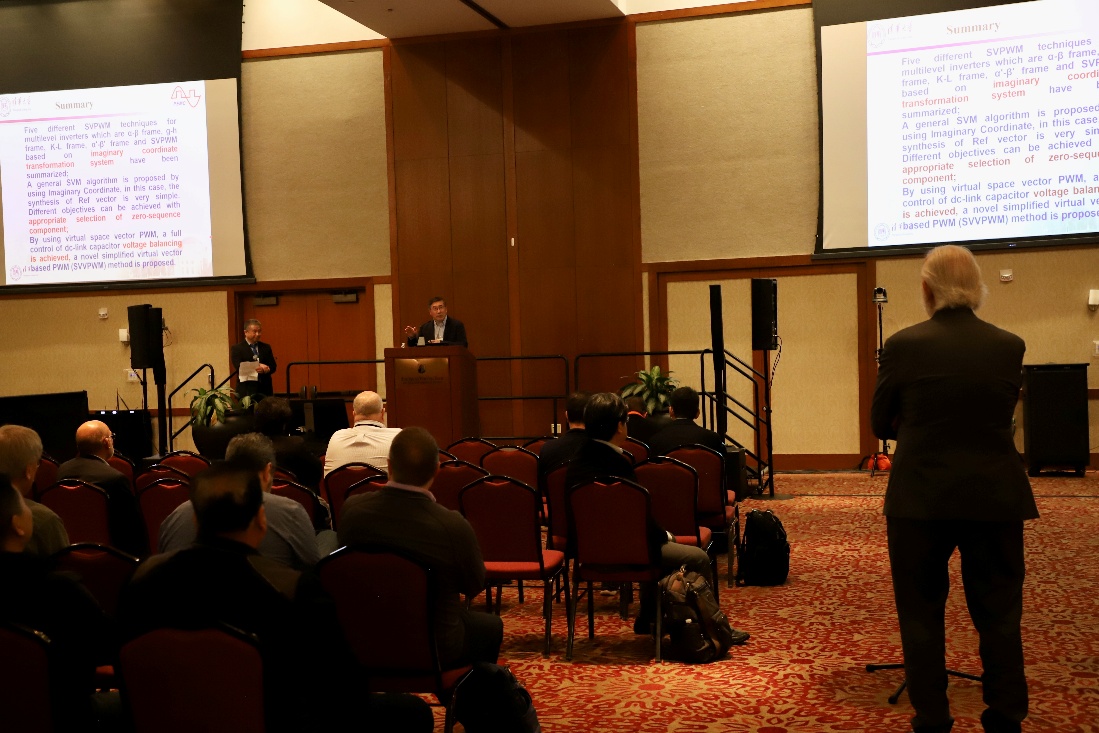
Professor Dushan Boroyevich, member of the U.S. National Academy of Engineering and CPES professor, questioning Professor Li Yongdong
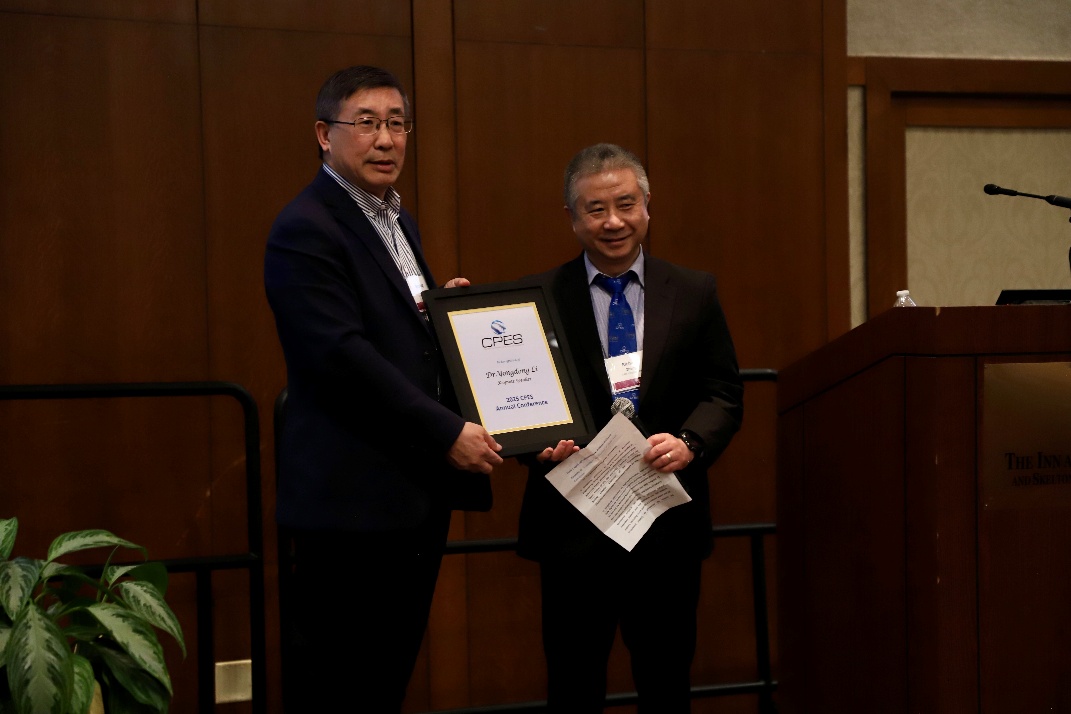
CPES professor and Tsinghua alumnus Richard Zhang presenting a certificate to Professor Li Yongdong
During the laboratory exchange sessions on April 15 and the afternoon of April 16, the six doctoral students shared their latest research results in the form of electronic posters with professionals from various fields, engaging in lively academic discussions. The topics covered cutting-edge and hot issues including flexible DC transmission technologies, wide bandgap power device technologies, medium-frequency transformer design, and resonant converter modulation techniques. Specific topics included: Bai Ruihang: Modular commutated converters for flexible DC transmission; Wang Leheng: A bidirectional symmetrical modulation method with a smaller switching frequency range suitable for CLLC converters; Hu Jialiang: Loss analysis and optimized design of megawatt-level medium-frequency transformers; Zhou Tianji: Two-level VSC for medium-high voltage DC transmission based on modular switches and dynamic clamping bridge arm control; Chen Yuzhi: A high-frequency, high-reliability split-gate SiC MOSFET structure with a P+ buffer layer; Yang Mingyu: Extraction of parasitic inductance in power modules considering multiple current paths.
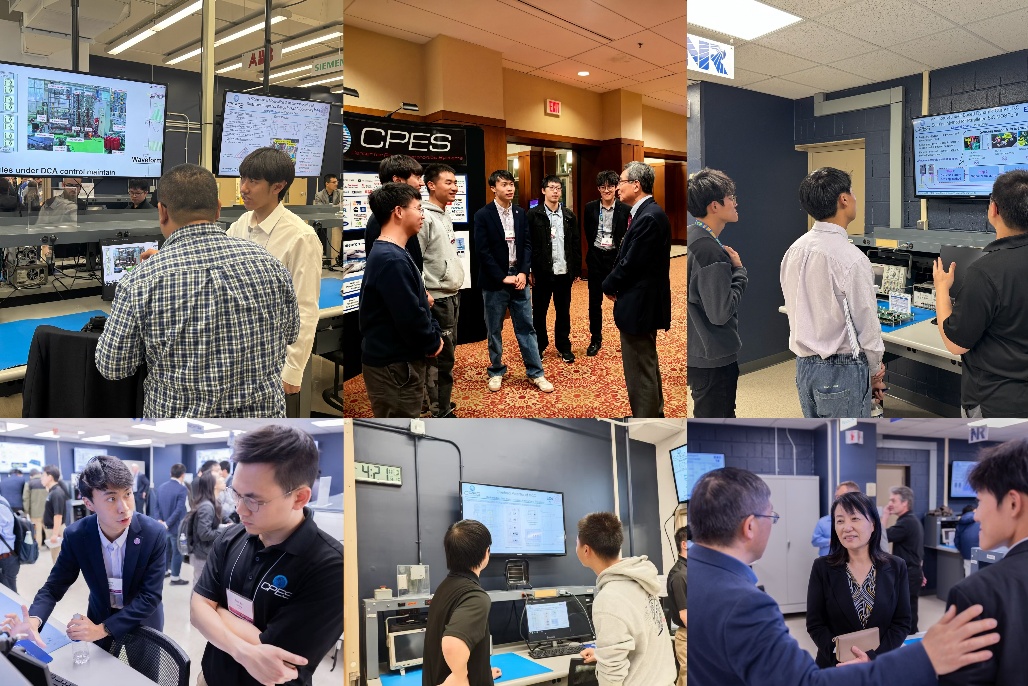
Conference participants presenting posters and engaging in deep exchanges with Virginia Tech faculty and students
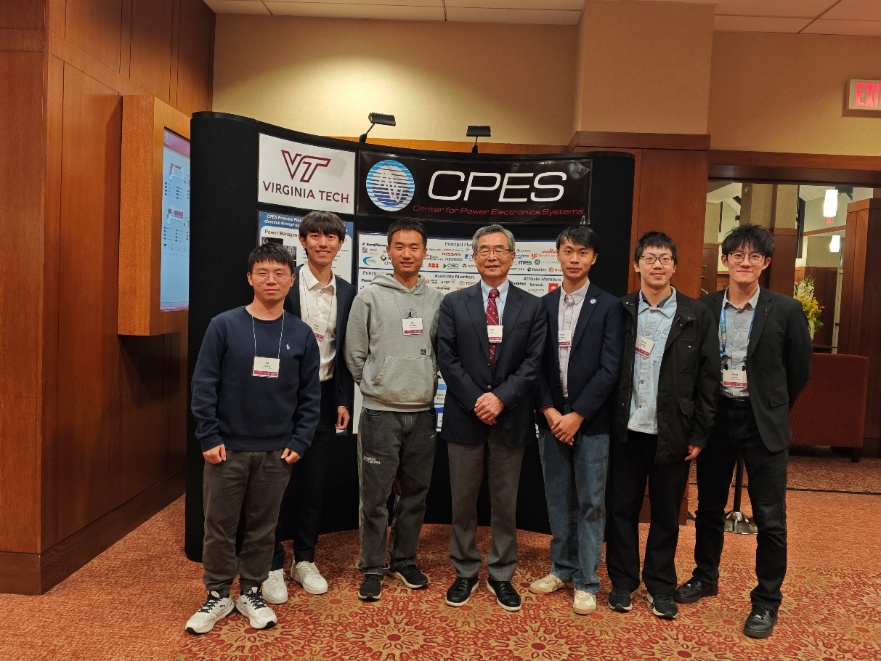
Professor Fred C. Lee, U.S. National Academy of Engineering member and foreign member of the Chinese Academy of Engineering, posing with conference participants in front of posters
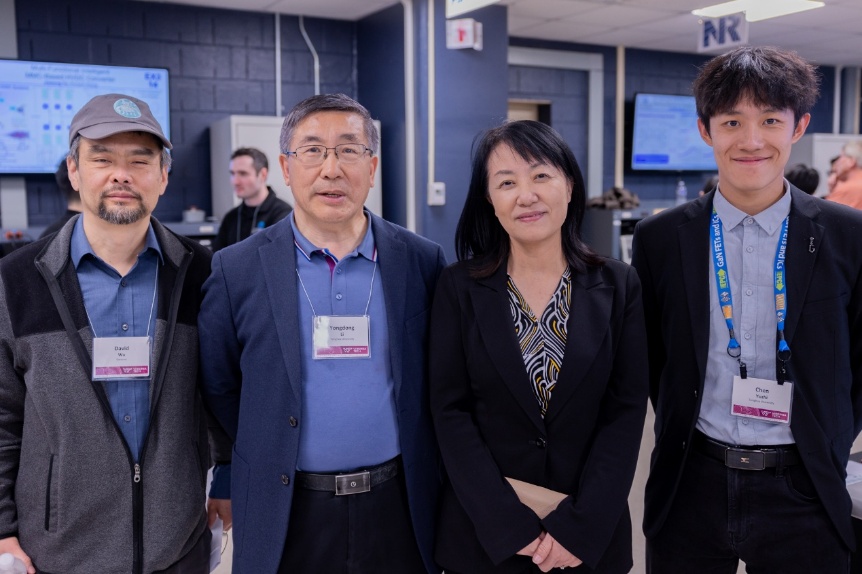
Professor Li Yongdong (Tsinghua), Professor Rose Hu (ECE Chair, Virginia Tech, second from right), alumnus David Wu (left), and doctoral student Chen Yuzhi at the laboratory exchange session
This in-person conference provided an excellent platform for collaboration and exchange between faculty and students of Tsinghua and Virginia Tech in the field of power electronics. It enabled the latest research achievements in power electronics from our department to be showcased on an international stage, allowing participants to absorb cutting-edge disciplinary developments and better promote progress in power electronics science and technology.
Virginia Tech is a world-renowned institution in engineering education, with the electrical engineering discipline (power systems and power electronics) consistently ranked among the global leaders. The Department of Electrical and Computer Engineering hosts four members of the U.S. National Academy of Engineering and 15 IEEE Fellows, and houses two internationally top-ranked research centers: the Power and Energy Center (PEC) and the Center for Power Electronics Systems (CPES). CPES, established over 30 years ago as the first engineering research center in electrical engineering approved by the U.S. National Science Foundation (NSF), has become one of the world’s most prestigious power electronics research institutions, continuously leading advances in the field. CPES founder Fred C. Lee, a member of both the U.S. National Academy of Engineering and the Chinese Academy of Engineering (foreign member), is a globally renowned scientist in power electronics who has long supported the development of power electronics at Tsinghua University. In 2017, he was appointed Tsinghua University Chair Professor and led the establishment of the Power Electronics Chair Professorship group, teaching the course "Modeling and Control of Power Electronic Converters" to graduate students, which has been warmly welcomed by faculty and students alike. Dushan Boroyevich, a U.S. National Academy of Engineering member and CPES professor, served as CPES director for many years and has been committed to collaboration with Tsinghua University. He facilitated the signing of a cooperation agreement between EEA and Virginia Tech ECE in 2018 and was appointed Honorary Professor at Tsinghua in 2024. The CPES Annual Conference, held every April, is a highly influential international academic event in the field of power electronics.

















 News & Events
News & Events